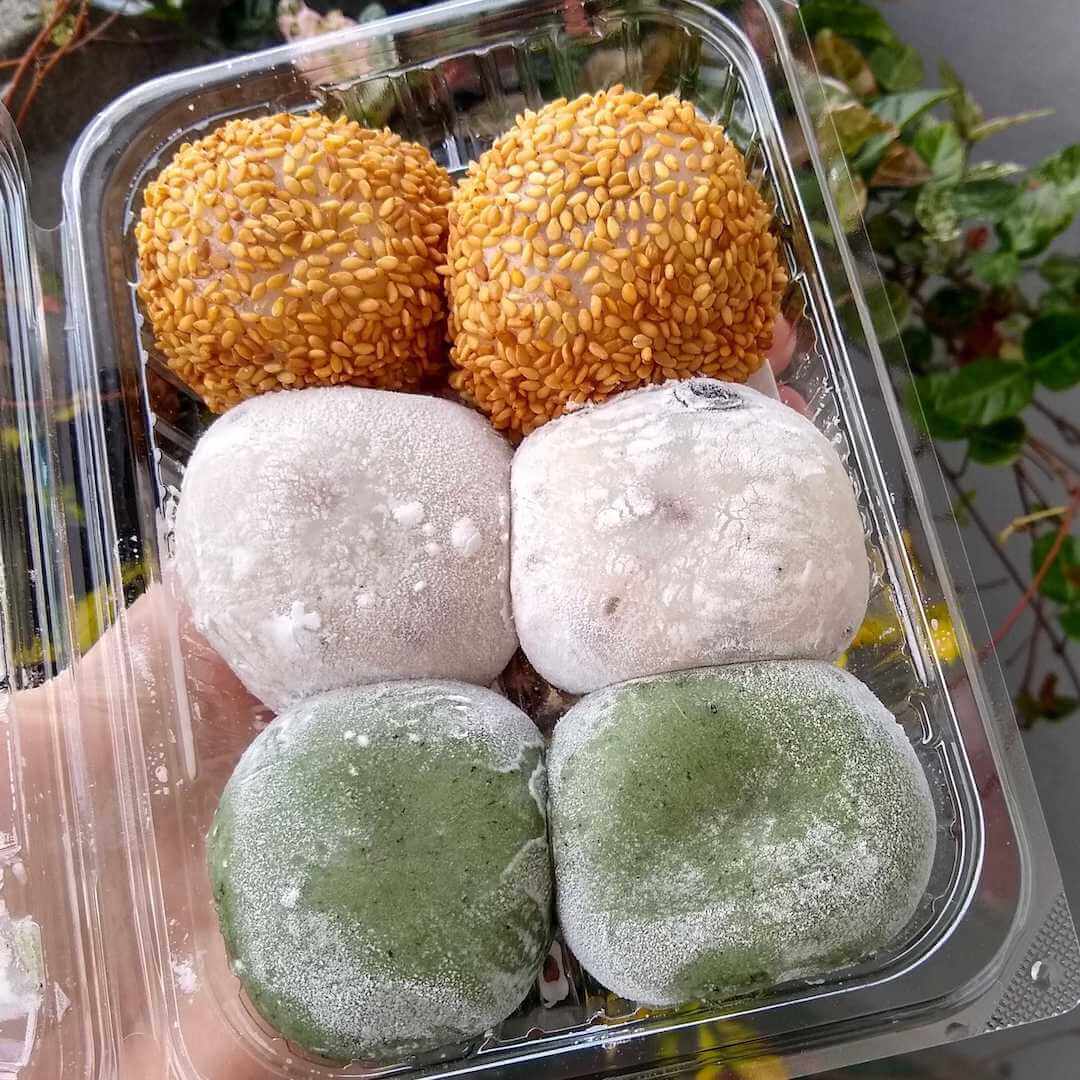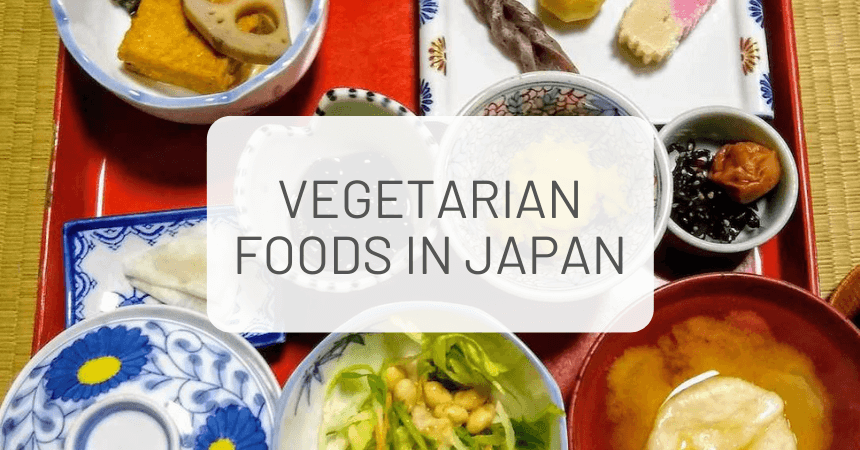
Guide to Vegan and Vegetarian Food in Japan
If you're a foodie, then Japan is the place to visit!
From north to south, the Japanese cuisine is exploding with mouth-watering ingredients and dishes that you just have to try.
That is, unless you're a vegetarian or vegan... 😭
While Japan has a long history of vegetarianism (called Shojin Ryori), it can be challenging to find vegan or vegetarian food in Japan.
Until now! To celebrate the launch of our limited edition Vegetarian Snack Pack, we've taken a deep-dive into all that Japan has to offer the vegan, vegetarian and food lover.
With a little research, and an adventurous spirit, you'll discover that there's a lot of the delicious and unique meat-free Japanese ingredients and dishes. Keep reading to find out more!
- Everyday Staples
- Quick Eats
- Izakaya and Japanese Restaurants
- Buddhist Vegetarian Cuisine
- Sweets and Desserts
- ZenPop's Vegetarian Snack Pack
Everyday Staples
In Japanese cuisine, there are a handful of ingredients that are a staple in day to day cooking. These are all vegan Japanese staples that you can enjoy on your next trip to Japan.
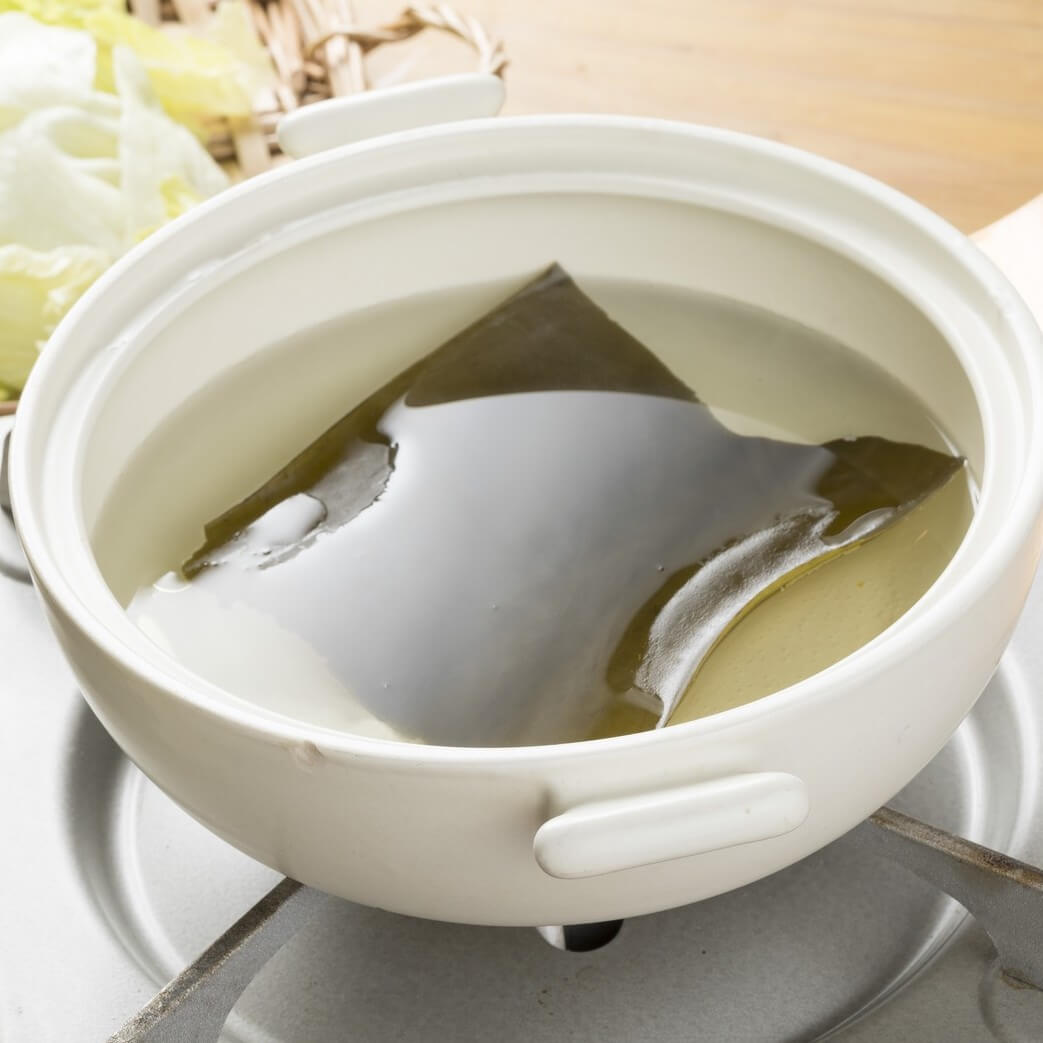
1. Dashi
Dashi is a Japanese soup stock that forms the base of a wide variety of dishes. Typically made from katsuobushi (skipjack tuna), vegan dashi is made from kombu (kelp), a type of edible seaweed and shiitake mushrooms. Dashi, made from katsuobushi, is one of the main reasons eating as a vegan or vegetarian in Japan is so difficult!
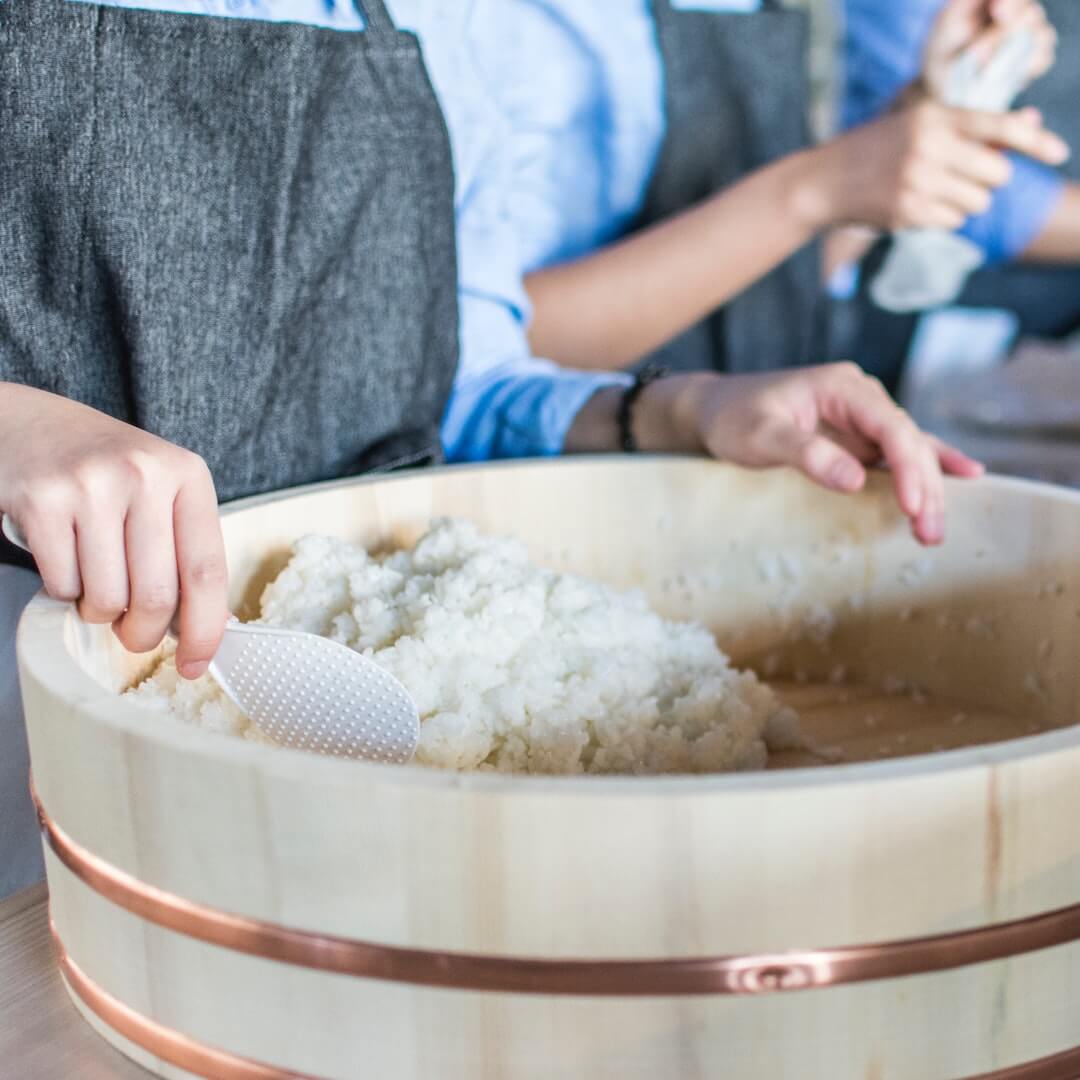
2. Japanese Rice
Japanese short-grain white rice is a staple of the Japanese diet. It becomes sticky when cooked making it easy to be picked up and eaten with chopsticks or moulded into an onigiri (rice ball).
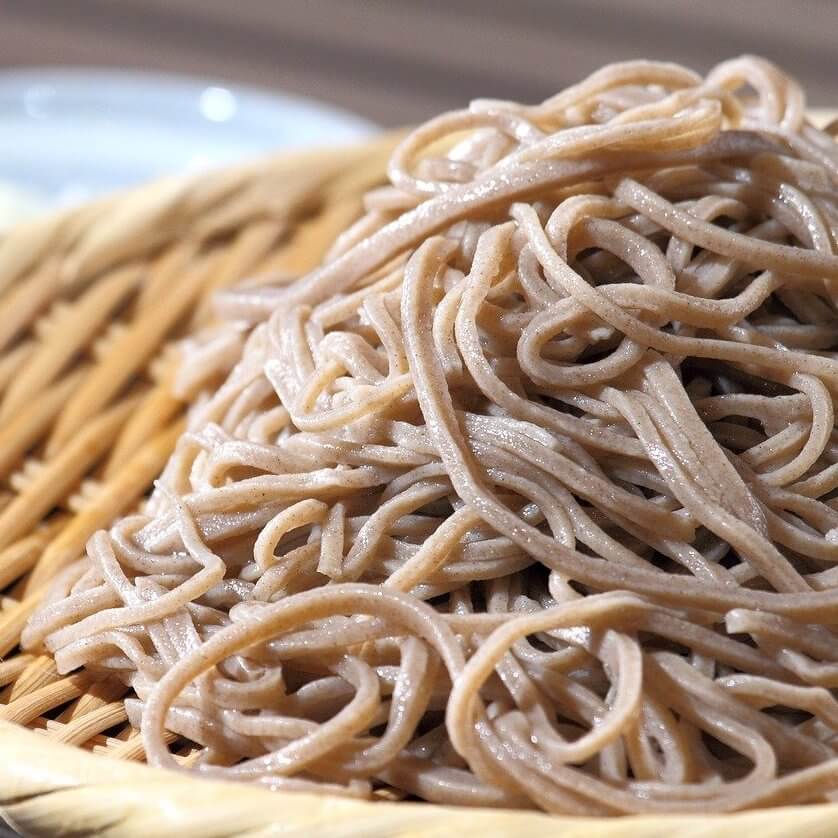
3. Noodles
Like rice, noodles are another staple of Japanese cuisine. There are so many different types of noodles - soba, udon, ramen, somen and more - as well as cooking methods, that you’ll never grow tired of Japanese noodles! Dishes like Zaru Soba, a simple meal of buckwheat noodles served with a dipping sauce, are a healthy and delicious vegan meal.
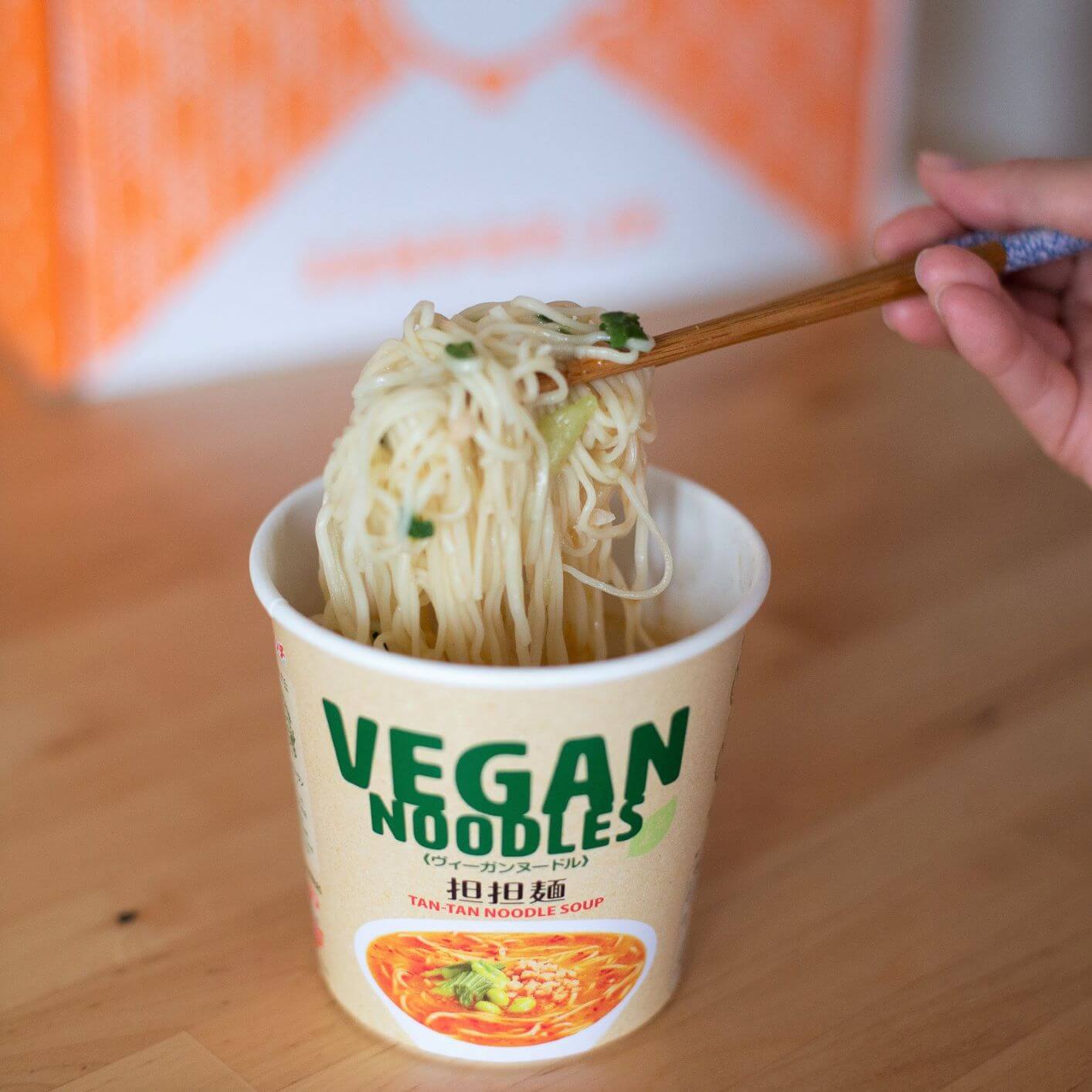
To enjoy a big hearty bowl of vegan ramen, try the Tan Tan Ramen included in ZenPop's Vegetarian Snack Pack. These vegan noodles are nutty, spicy and delicious. The production is supervised by T's Restaurant - a mecca for all vegan ramen lovers in Tokyo.
Order Now
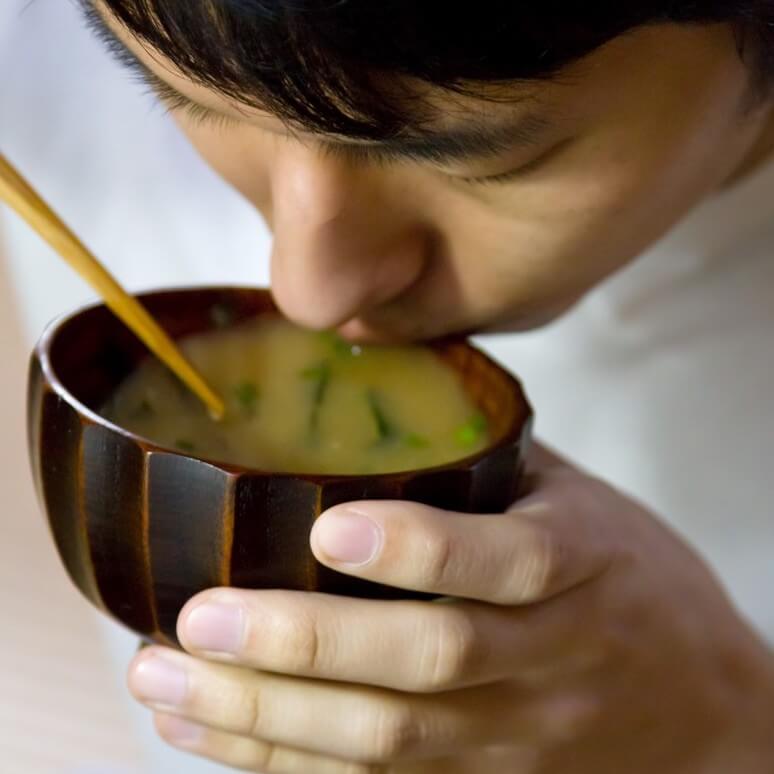
4. Miso
Miso is made by fermenting soybeans with salt and kōji. Miso soup is not only delicious, but also has many amazing health benefits. Typically the broth is made from kombu or katsuobushi. Make sure it’s the former to enjoy a nourishing vegan soup.
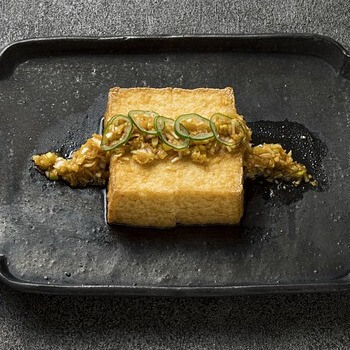
5. Tofu
Made of curdled soy milk, tofu is a great source of protein and a staple of the Japanese diet. It’s a versatile ingredient that can be used in a variety of sweet and savory dishes. Fresh tofu can be soft (or siken) or firm. There are also several types of deep-fried tofu, like aburaage and atsuage.
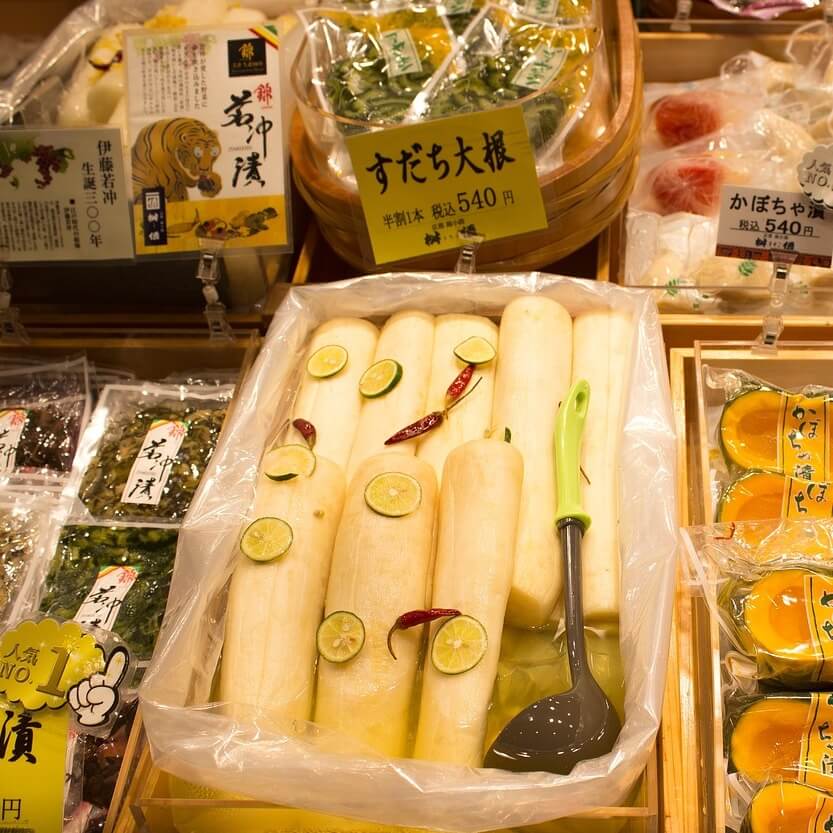
6. Pickles
Japanese pickles or tsukemono add the perfect crunch to every meal, whether it be as a side dish or garnish. The most common preserved vegetables are daikon (radish), umeboshi (pickled plum), turnip, cucumber and Chinese cabbage.
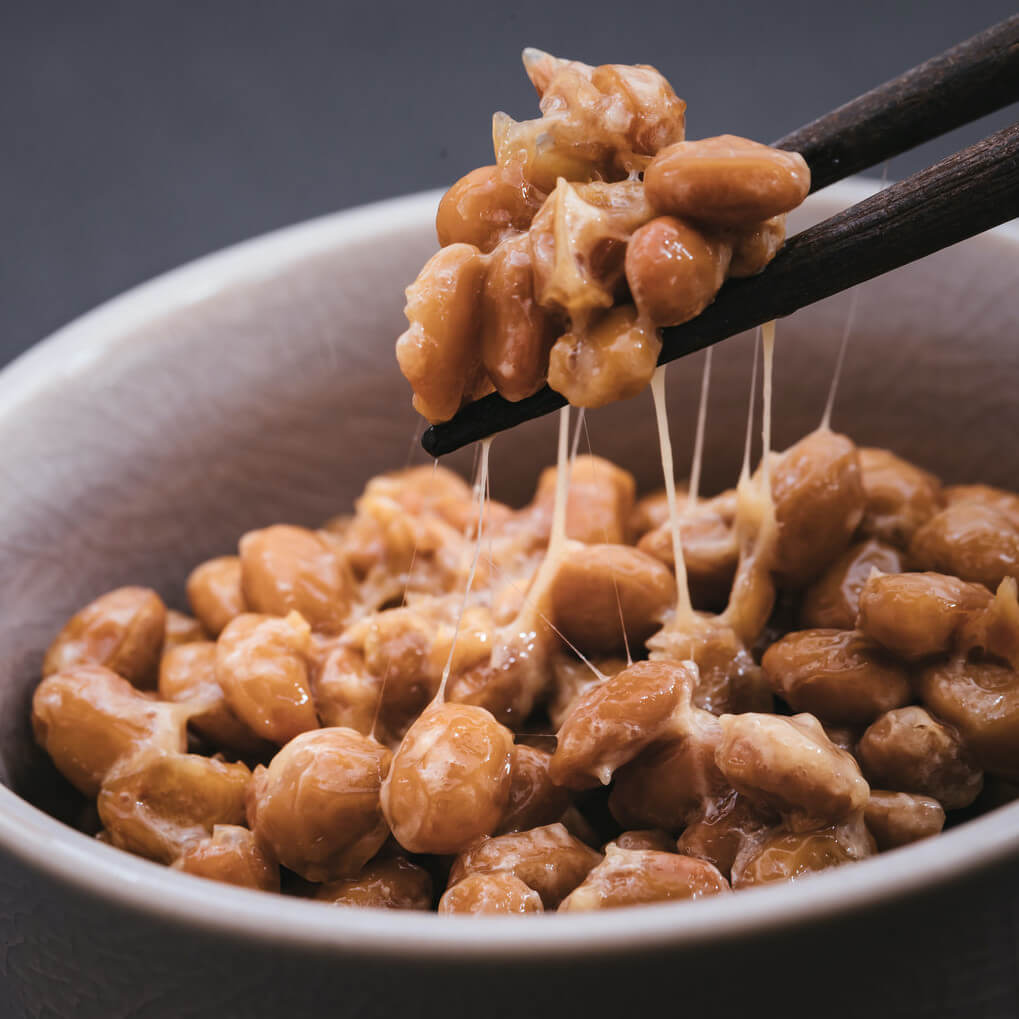
7. Natto
You’ll either love or hate natto; and if you haven’t tried Japan’s infamous fermented soybeans, then you’re in for a surprise! Considered a Japanese superfood, natto is one of the healthiest soy products you can find. Eat it with a bowl of rice for a traditional Japanese breakfast.
Quick Eats
To enjoy a quick, tasty and cheap meal, grab any of these vegan snacks from a konbini (convenience stores) or supermarket!
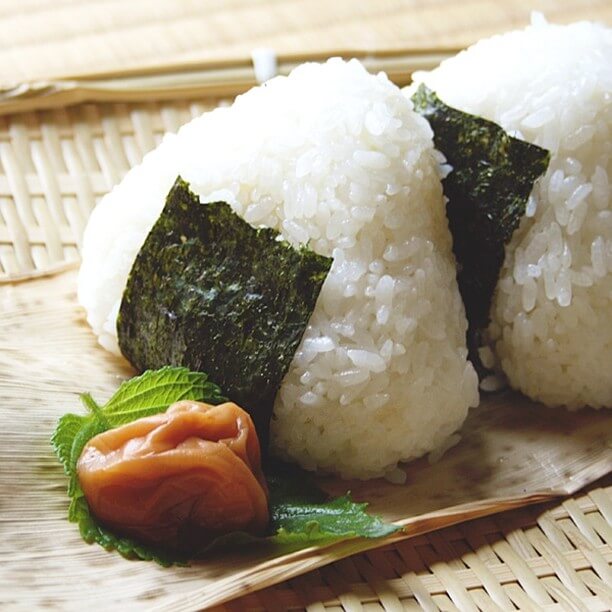
1. Onigiri
Japanese rice balls are triangular balls of white rice, stuffed with a tasty filling of your choice. We recommend plain salt, pickled plum, seaweed and red bean onigiri.
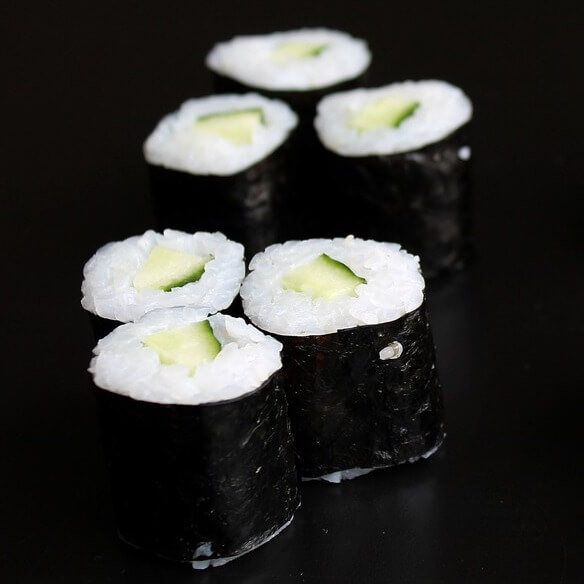
2. Sushi
Kappa-maki (cucumber roll), takuan-maki (pickled daikon radish roll) and inari sushi are all suitable vegan sushi options. Check the menu online before visiting popular sushi restaurant chains like Sushiro, Kaitensushi or Kura Sushi.
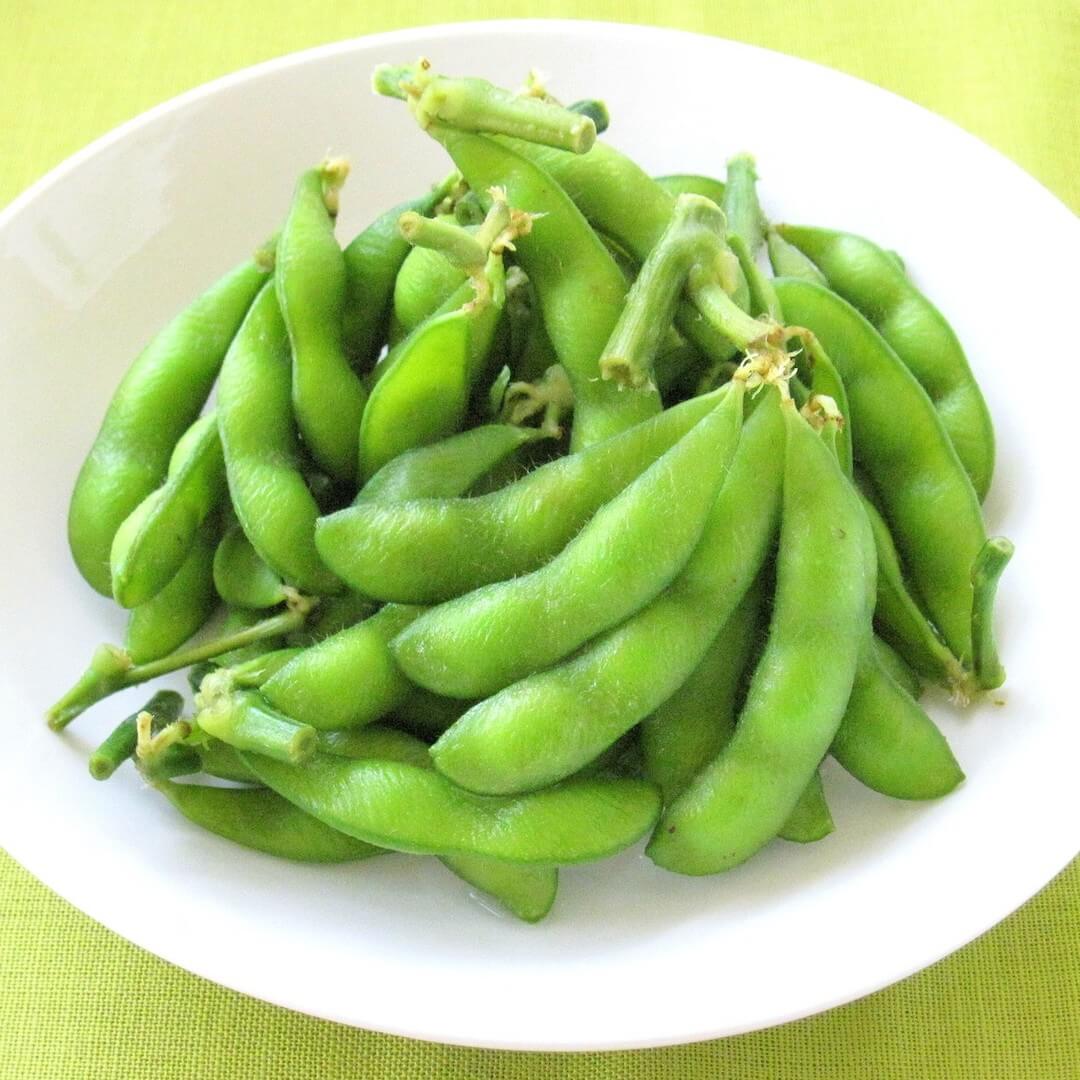
3. Edamame
Boiled green soybeans are the ultimate Japanese snack, lightly salted and rich in healthy fiber and other nutrients.
Izakaya and Japanese Restaurants
Japan has such a rich dining culture, from hole-in-the-wall izakayas to popular chain restaurants, there is no shortage of delicious Japanese food to be enjoyed! Get prepared and familiarize yourself with some of our favorite vegetarian and vegan-friendly Japanese dishes.
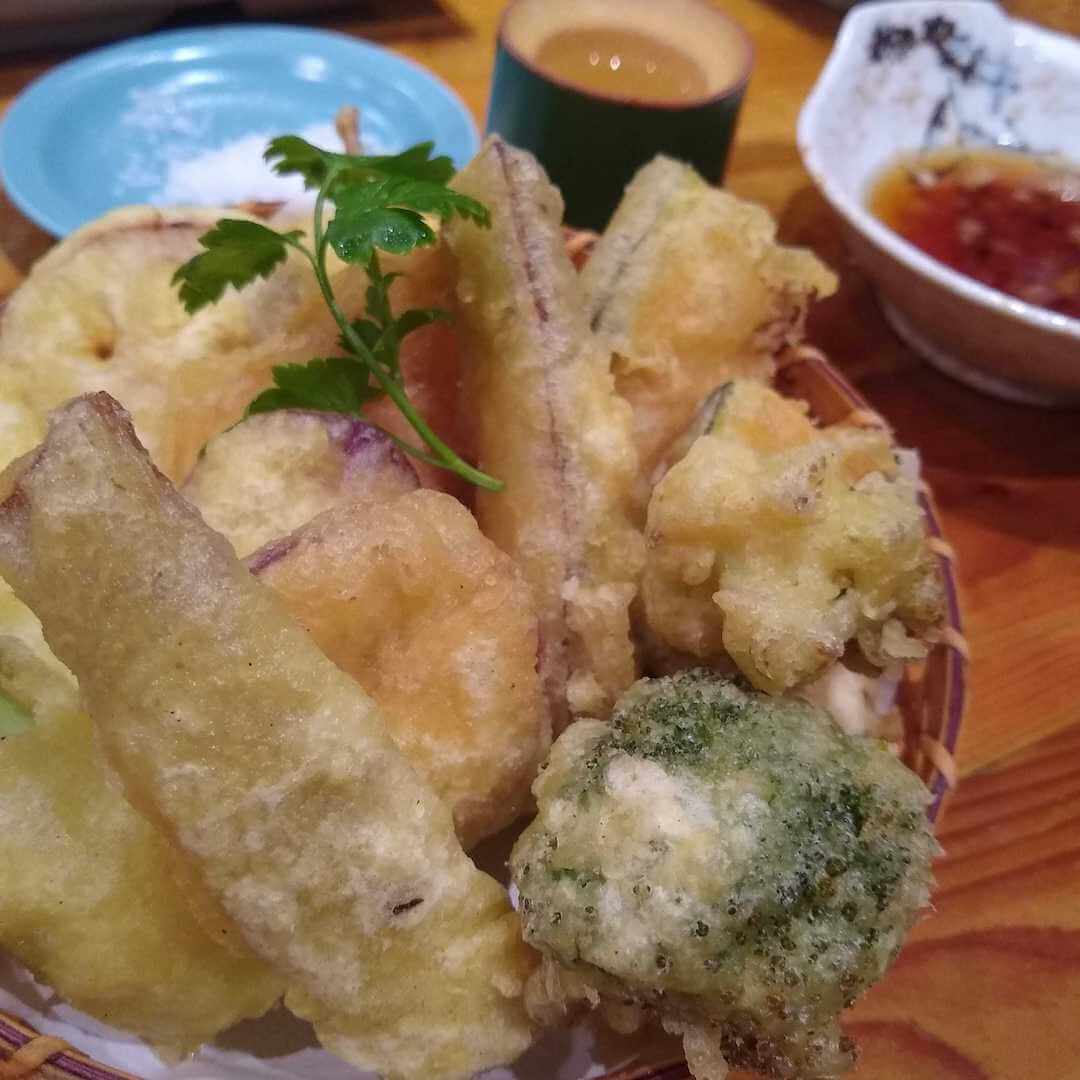
1. Tempura
Lightly battered vegetables, and typically meat and seafood, are a popular and tasty meal served with rice (tempura donburi or tempura-don) or noodles. As tempura is served individually, you can easily choose only vegetables. We recommend sweet potatoes, shiitake mushrooms, eggplant and kakiage (mixed vegetables).
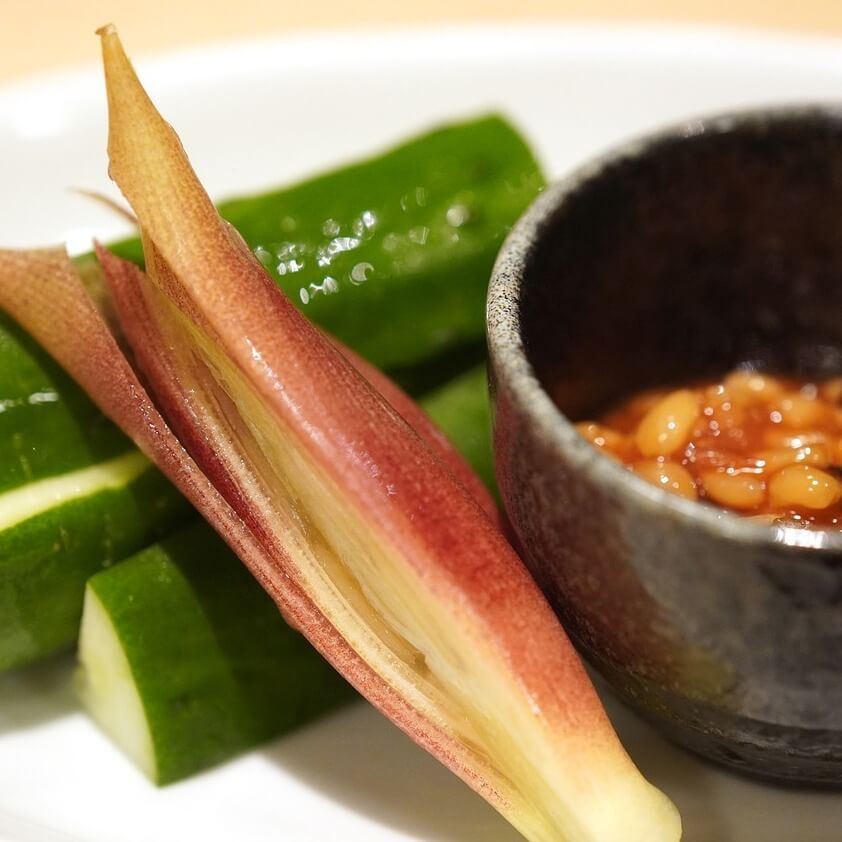
2. Cucumber and Moromi Miso
Moromi miso is a salty miso paste, usually with added rice or barley, that is eaten like a dip with cucumbers and other raw vegetables.
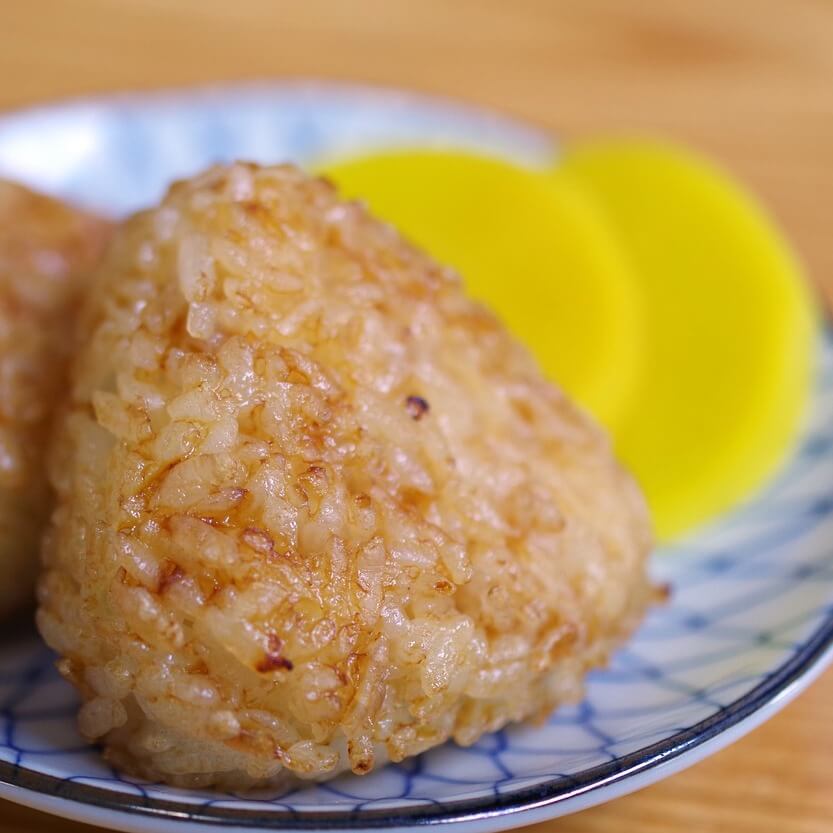
3. Yaki Onigiri
Yaki Onigiri are a favorite at izakaya restaurants! They’re Japanese grilled rice balls covered in sweet, savory and flavorful sauce, which is made of mirin, sake, sugar and soy sauce.
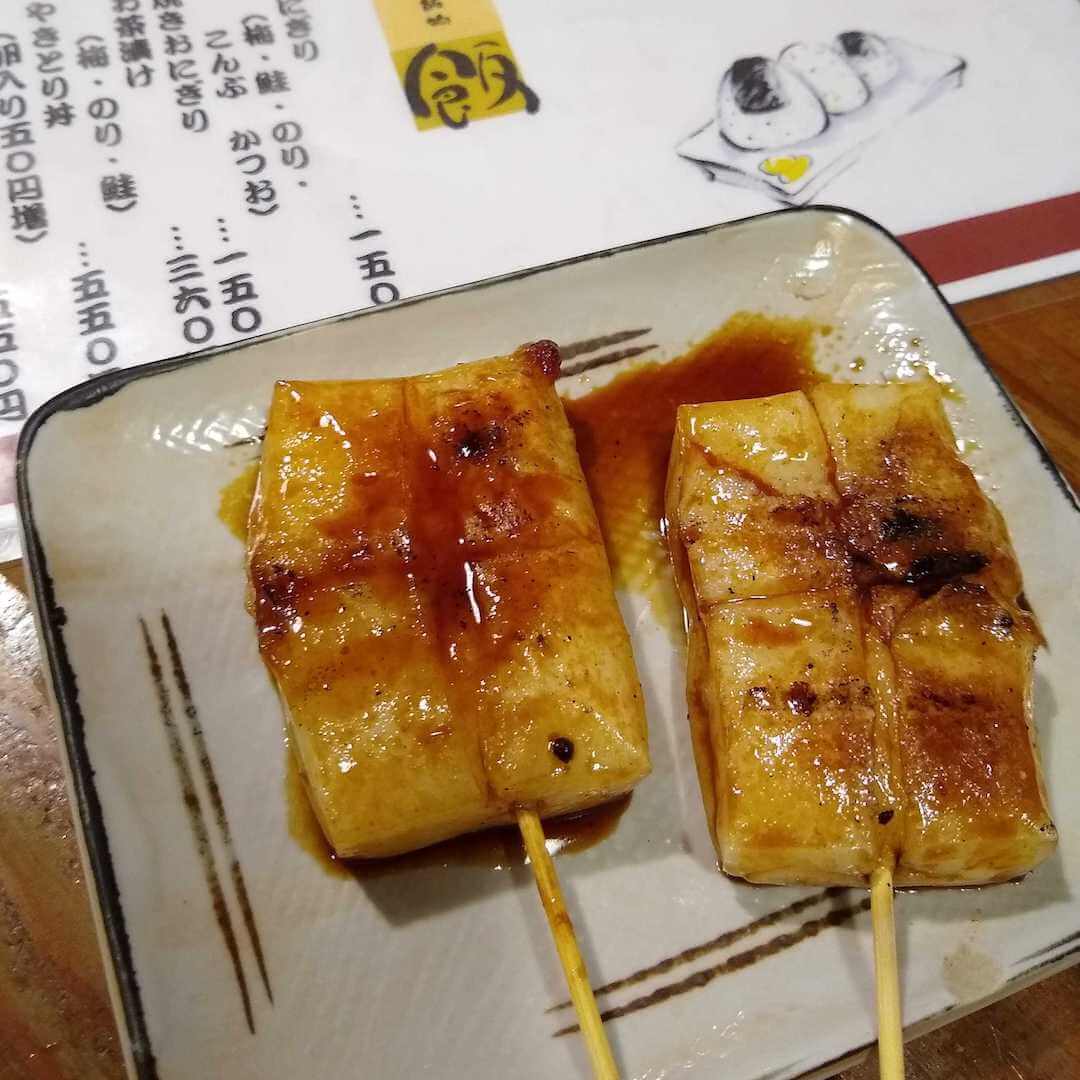
4. Yaki Mochi
Similar to Yaki Onigiri, mochi (Japanese rice cakes) are grilled and coated in a sweet and savory sauce. A delicious and filling snack that pairs well with a cold beverage!
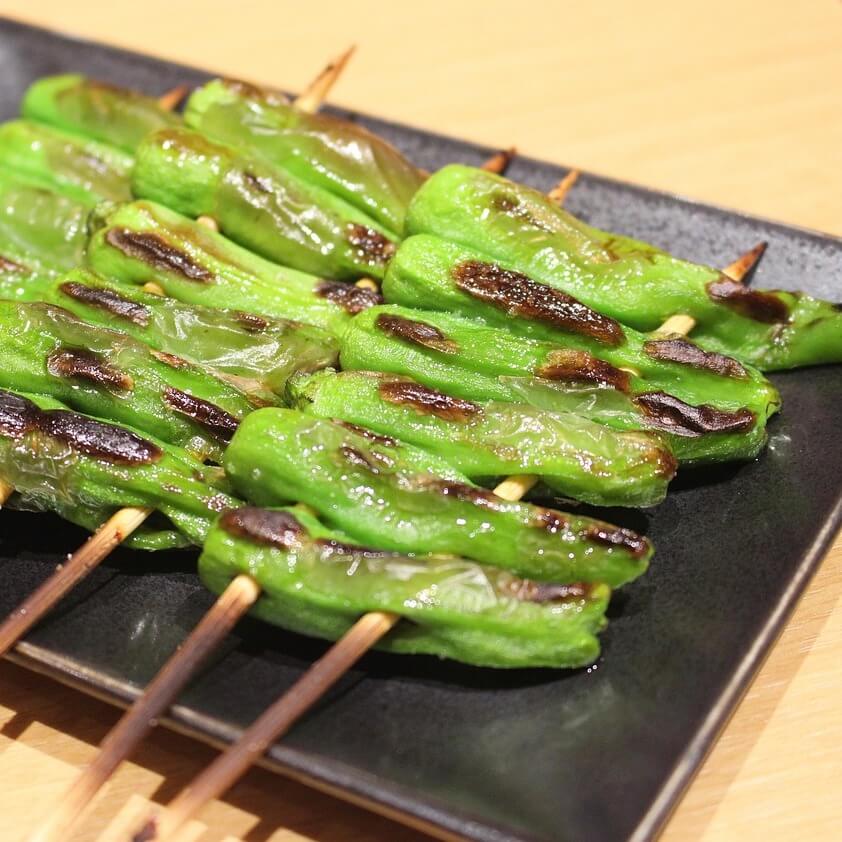
5. Yakitori
Yakitori are typically grilled chicken skewers, coated with shio (salt) or a sweet and savory tare (sauce). Luckily, restaurants often have some vegetarian yakitori options, like shishito peppers and shiitake mushrooms, so no need to sit out this Japanese experience. Most izakaya will also have other vegetarian dishes like fried foods, kushikatsu, rice, pickles and salad.
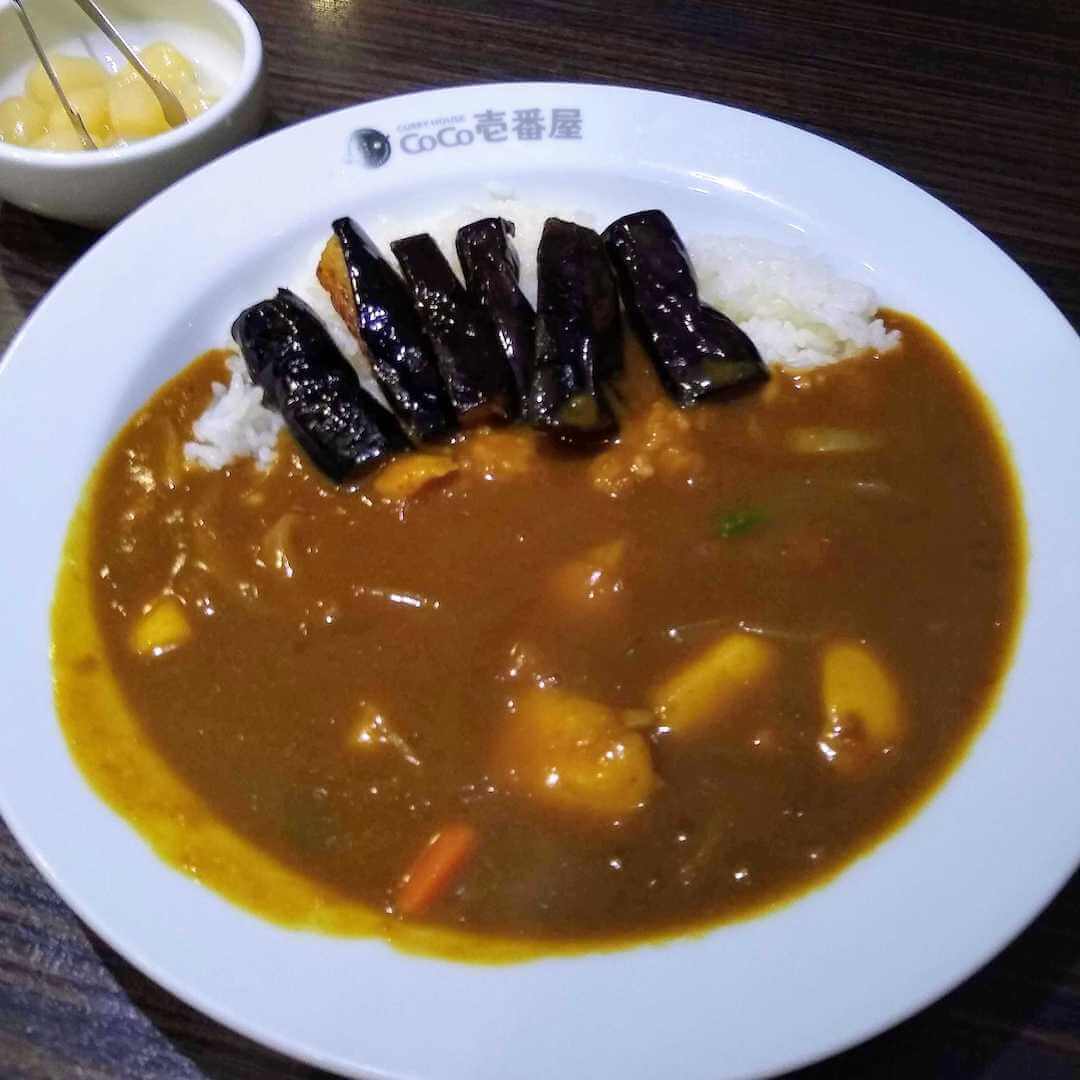
6. Japanese Curry
Japanese curry is a popular dish and you can’t leave Japan without trying it. Unlike Indian curry, Japanese curry is less spicy and fairly sweet. Also, it’s typically served with rice (pronounced Kare Raisu) rather than naan. Well-known curry house chain Coco Ichibanya offers a vegan menu.
Buddhist Vegetarian Cuisine
Shojin Ryori is the traditional dining style of Buddhist monks in Japan, which is made without meat, fish and other animal products. While known as Buddhist vegetarian cuisine, the literal translation is "devotion food."
The cuisine is 100% vegetarian, and often vegan. The main ingredients are tofu and other soy products, as well as fu (wheat gluten) and konnyaku (jelly-like food made from the konjac plant). Of course, you'll also enjoy a range of seasonal vegetables, pickles and miso soup.
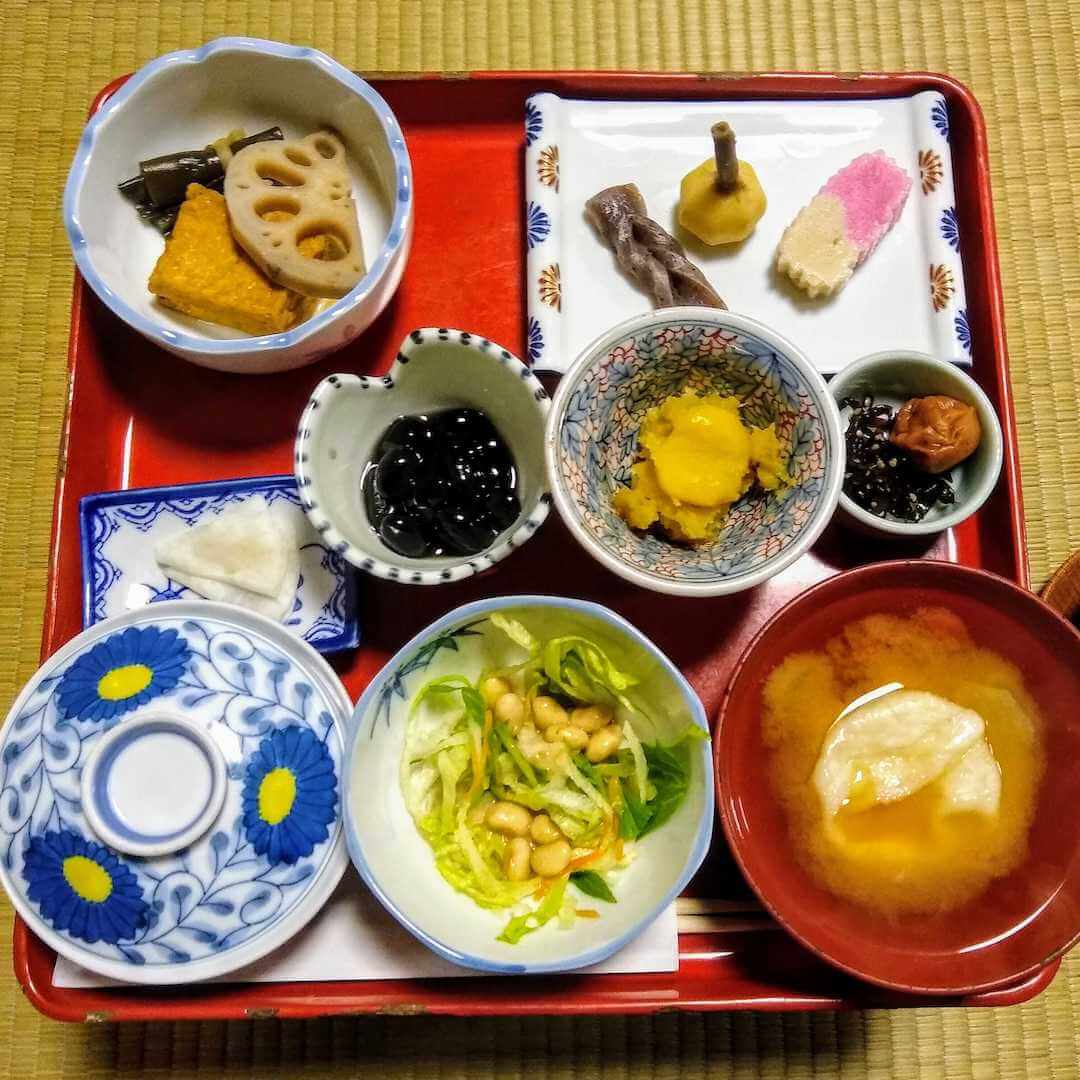
The popularity of this Japanese vegan cuisine grew in popularity in the 13th century with the spread of Zen Buddhism. While it's not so widespread today, you can enjoy it when you stay at a temple, such as in Mt Koyasan or at other speciality restaurants in Tokyo or other Japanese cities.
Sweets and Desserts
From konbini to specialty dessert shops, you'll be spoilt for choice when it comes to Japanese desserts. Typically Japanese desserts are not as sweet as Western desserts, but will still do the job in satisfying your sweet tooth!
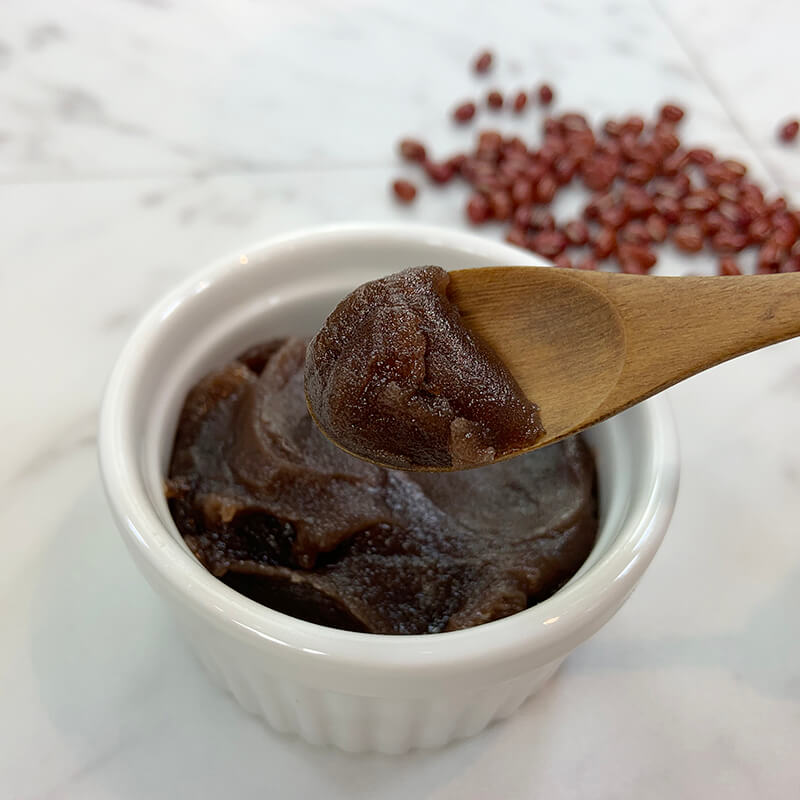 Source: Tomiz
Source: Tomiz
1. Anko (Sweet Red Bean Paste)
Azuki beans are boiled and mixed with sugar to create smooth anko (koshian) or chunky anko (tsubuan). Anko is one of the most popular dessert ingredients, used in wagashi, mochi, baked goods and even served on top of hotcakes or soft serve icecream.
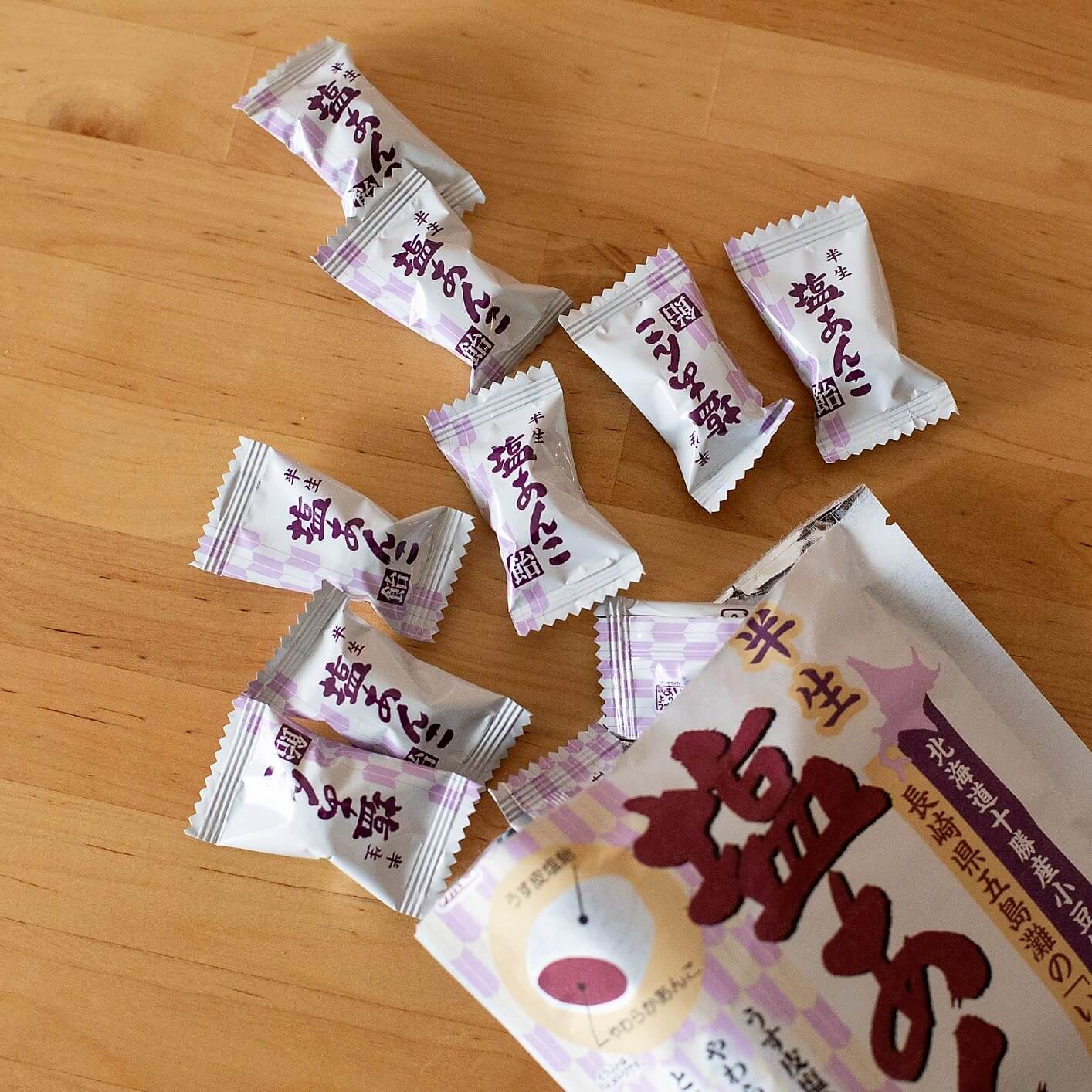
This anko okashi (sweet) is made with red beans from Tokachi, Hokkaido and salt from Iso-shio from the Sea of Goto island, Nagasaki prefecture. Enjoy the sweet and salty treat in our limited edition Vegetarian Snack Pack.
Order Now
2. Mochi
Japanese rice cakes are made of glutinous rice and there are endless varieties to try. We love ichigo daifuku, mochi stuffed with sweet red bean paste and a fresh strawberry. Or try a hot bowl of zenzai (oshiruko), red bean soup with mochi, in the cooler autumn or winter in Japan.
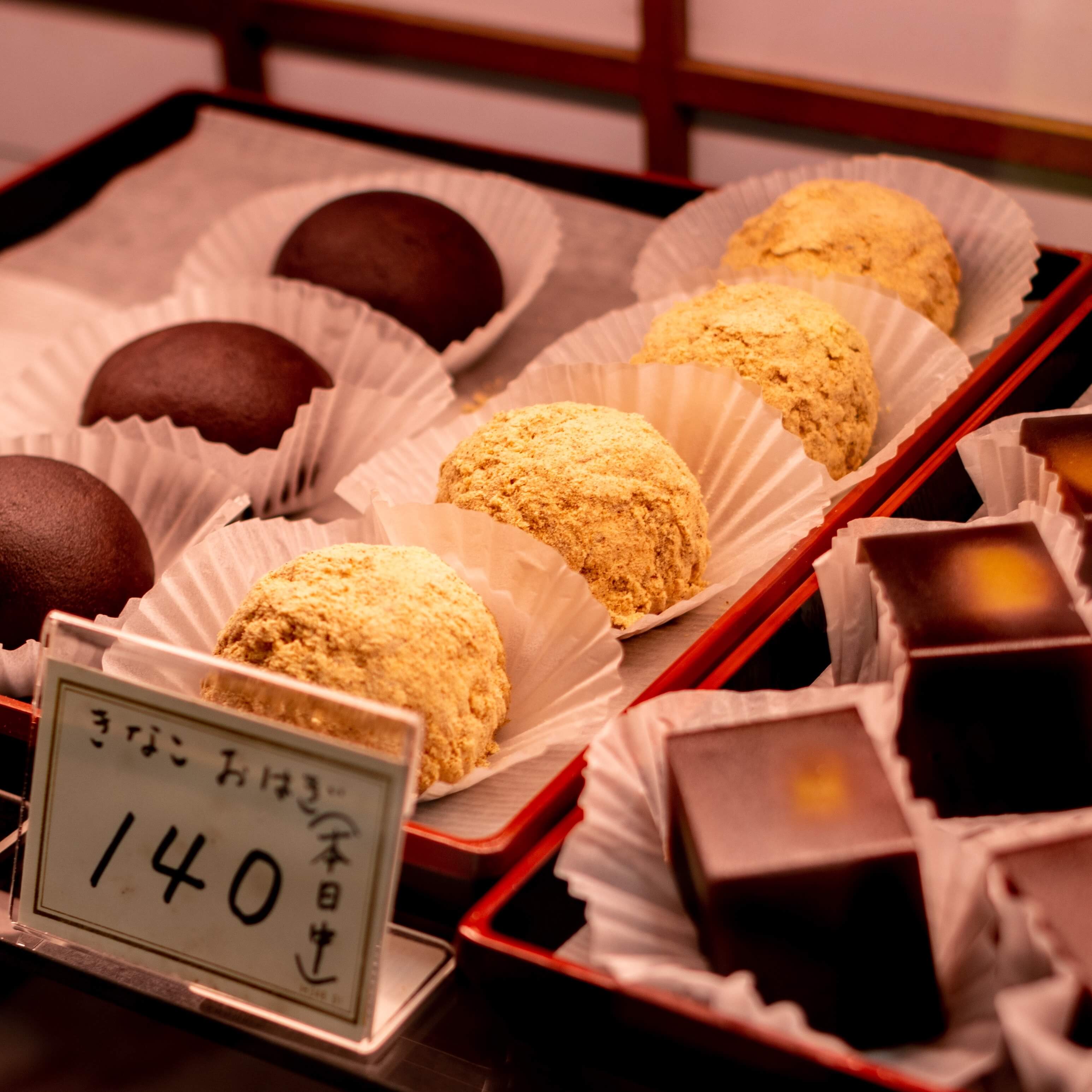
3. Traditional Sweets
Japan has a long history of traditional sweets, called wagashi, going back hundreds of years. Wagashi are often made of mochi, anko, sesame paste, chestnuts or sweet potato. Pair a sweet wagashi with a cup of bitter green tea for an authentic Japanese experience.
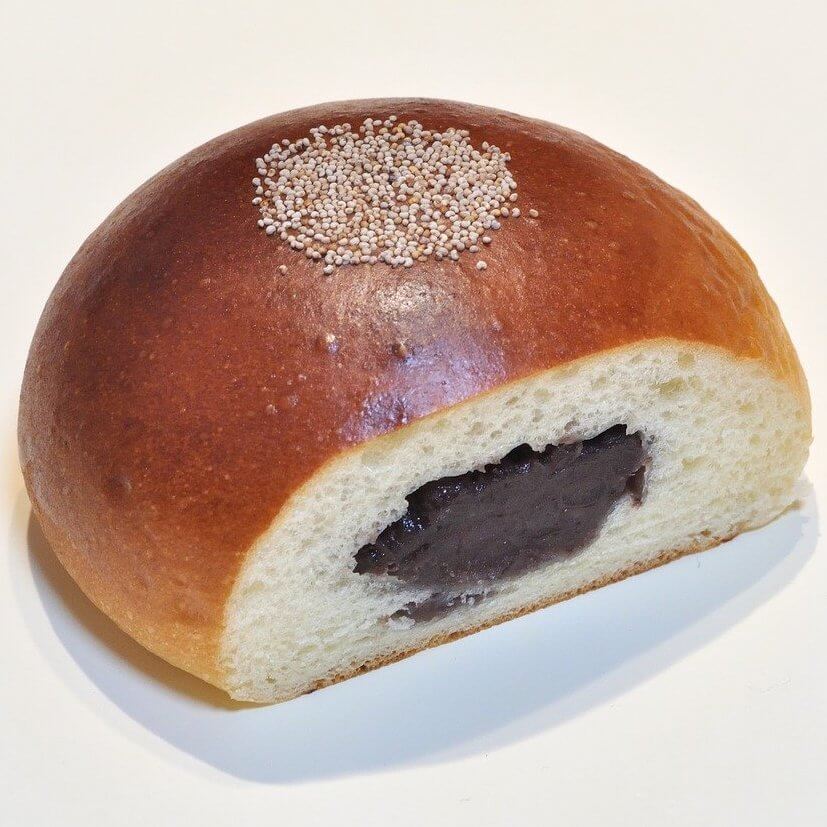
4. Sweet Baked Goods
Japan loves breads and sweet baked goods, from melonpan to anpan (a sweet bread filled with red bean paste). So, make sure to explore Japan's bakeries! Note that bread dough is often made with milk.
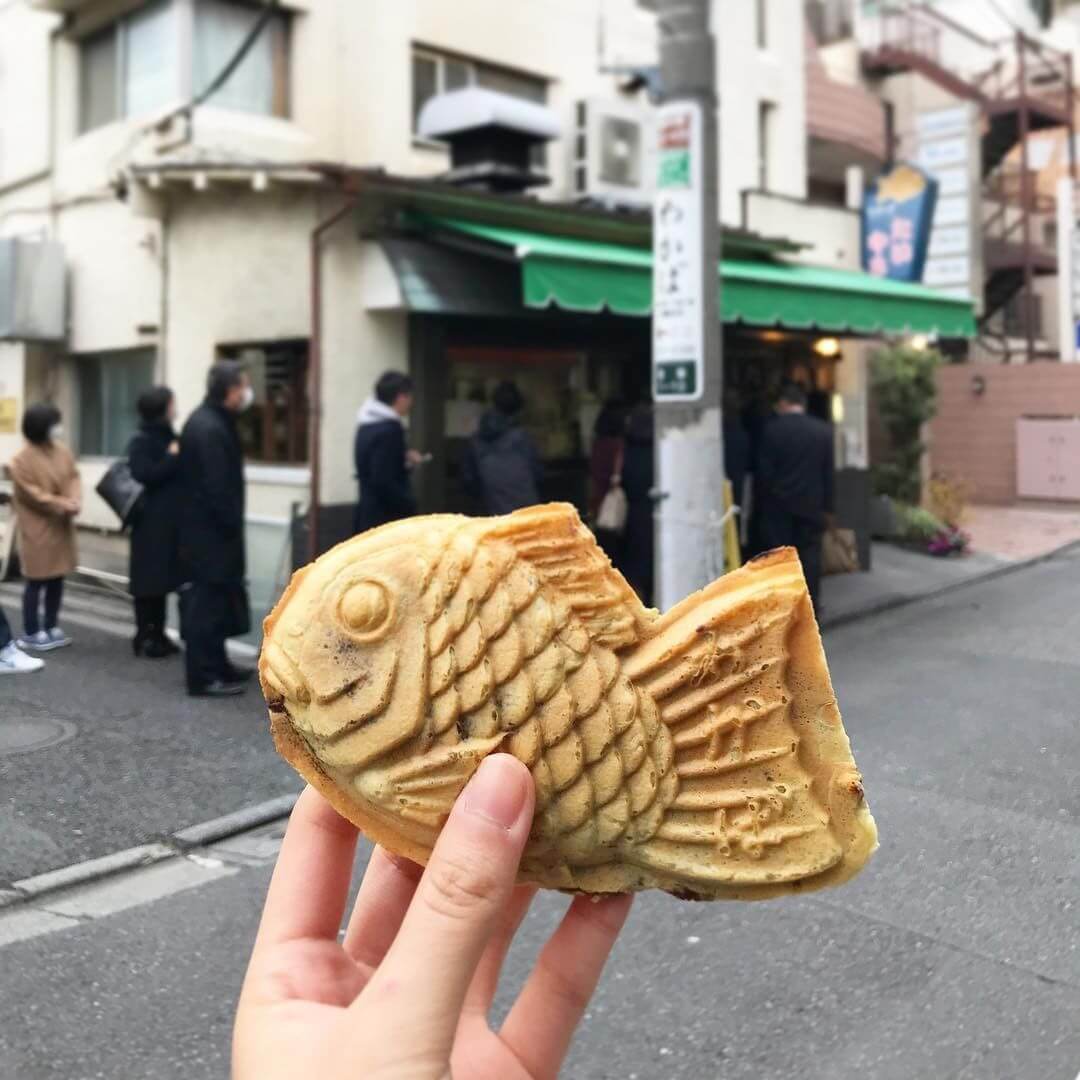 Image: japanese_foodie (Instagram)
Image: japanese_foodie (Instagram)
5. Japanese Street Food
While Japan doesn’t have as strong a culture of street food as some other Asian countries do, there is still a selection of delicious snacks for you to grab-and-go! Taiyaki, literally “baked sea bream” is one of our favorite Japanese street food snacks.
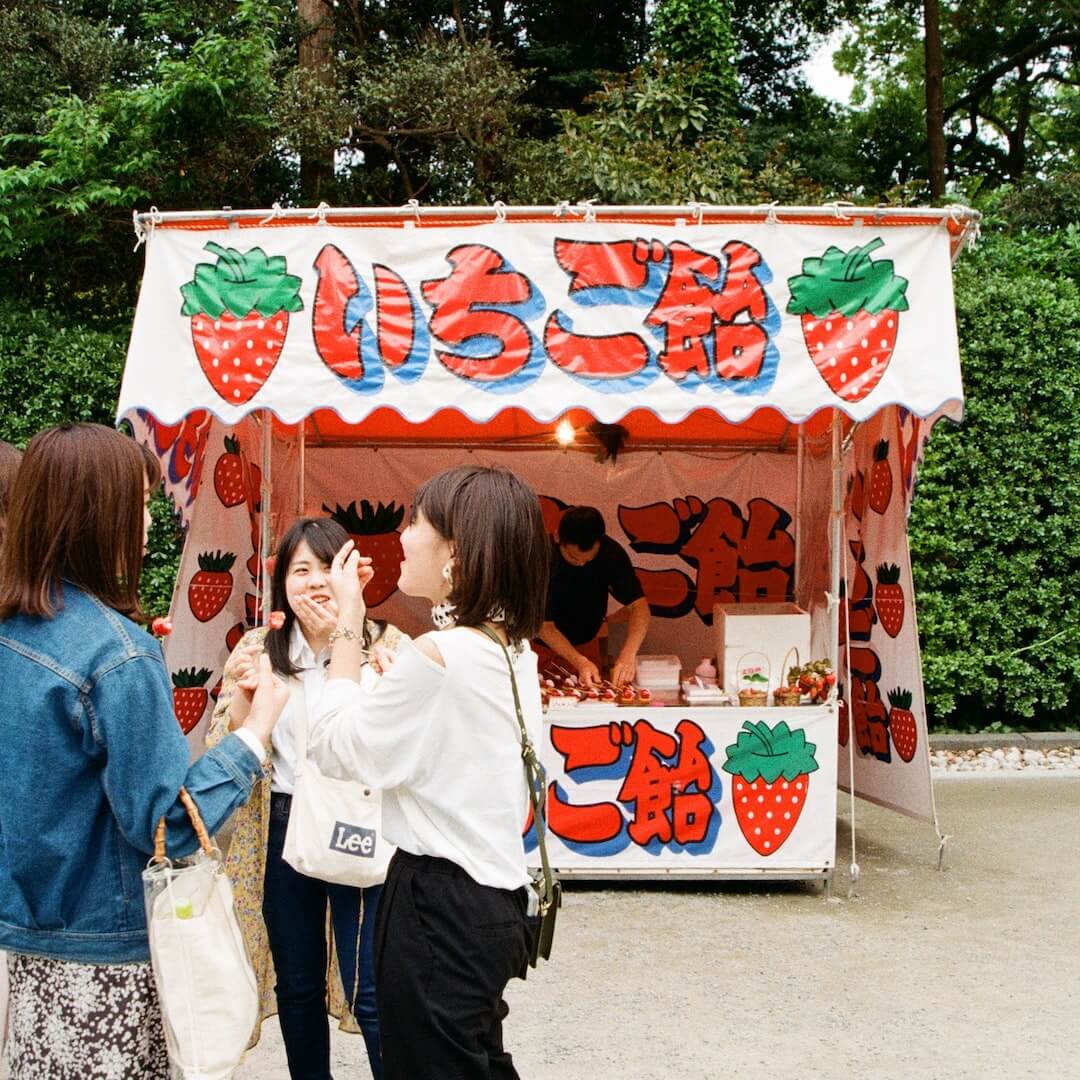
6. Japanese Festival Food
There are so many delicious foods to enjoy at a Japanese festival or matsuri, such as ichigo ame or candied strawberries. Depending on the season, you'll also find creamy Japanese sweet potatoes, roasted kuri (chestnuts) and kaki (persimmon) flavored treats!
ZenPop's Vegetarian Snack Pack
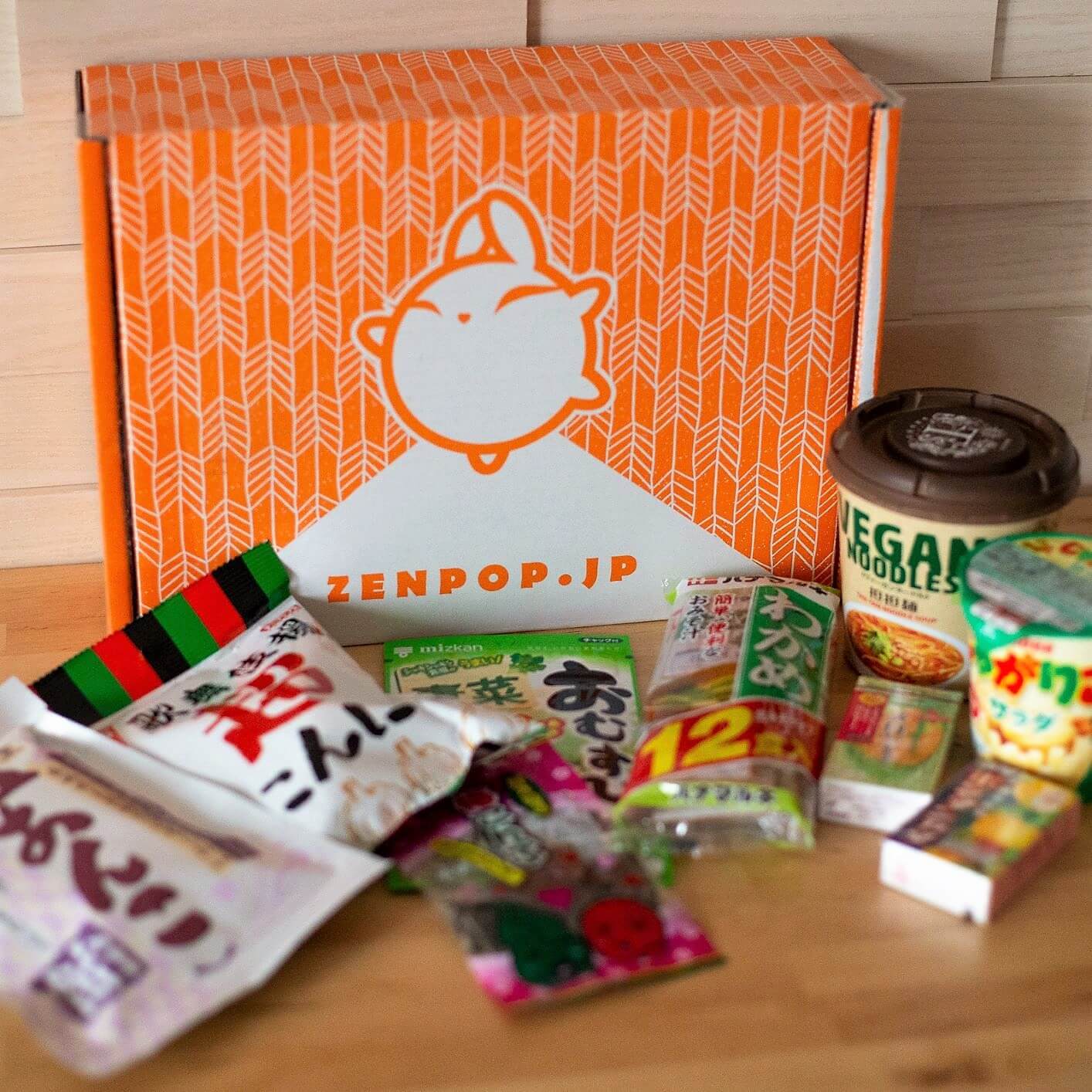
To discover some of the best vegan and vegetarian noodles, snacks and candy from Japan, try our new and limited edition Vegetarian Snack Pack.
It's perfect for any vegan, vegetarian or lover of Japanese cuisine. You'll enjoy 7 healthy vegan Japanese foods and 2 delicious vegetarian Japanese snacks, including:
- T's Tan Tan Men
- Salted Red Bean Candy
- Calbee's Jagariko Potato Sticks
- And lots more!
Order Now
